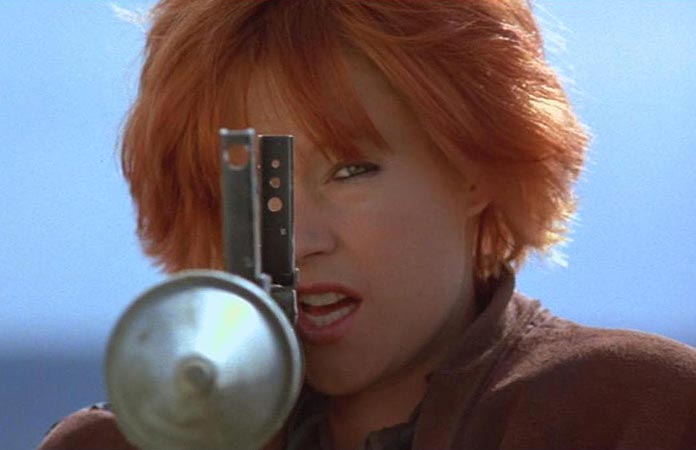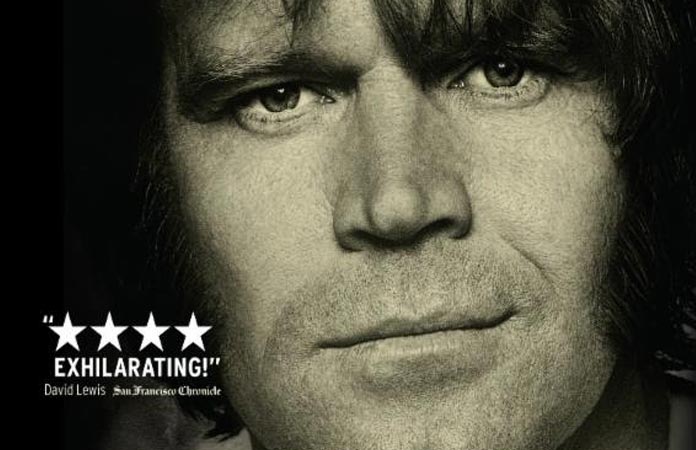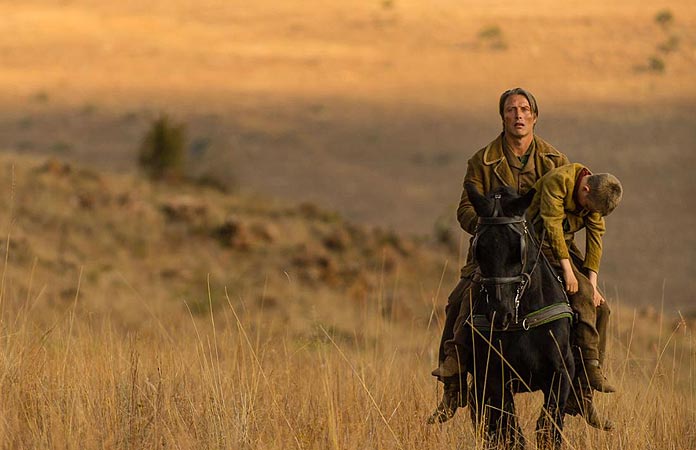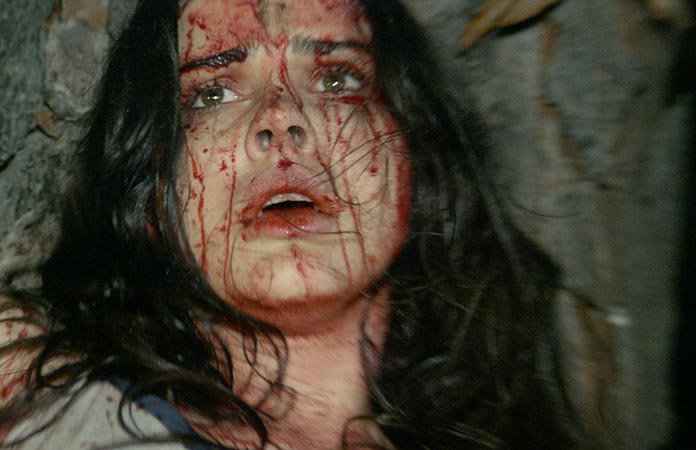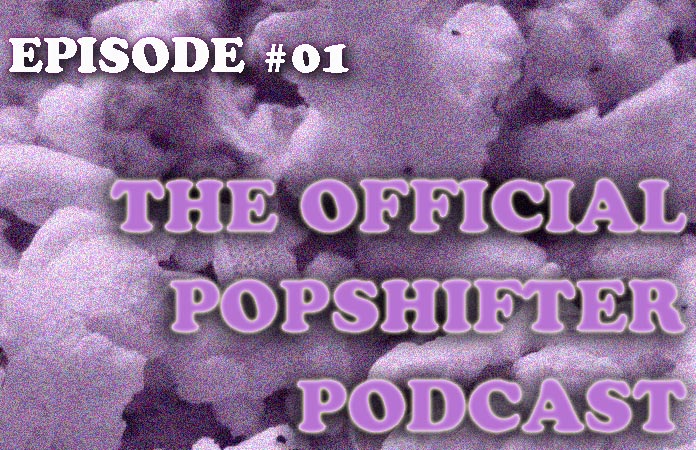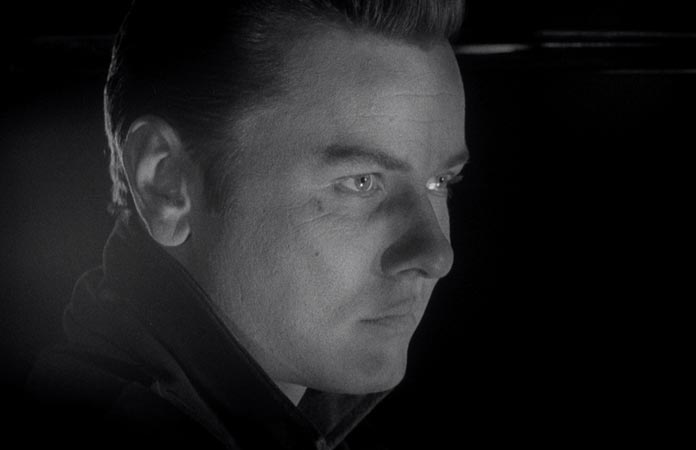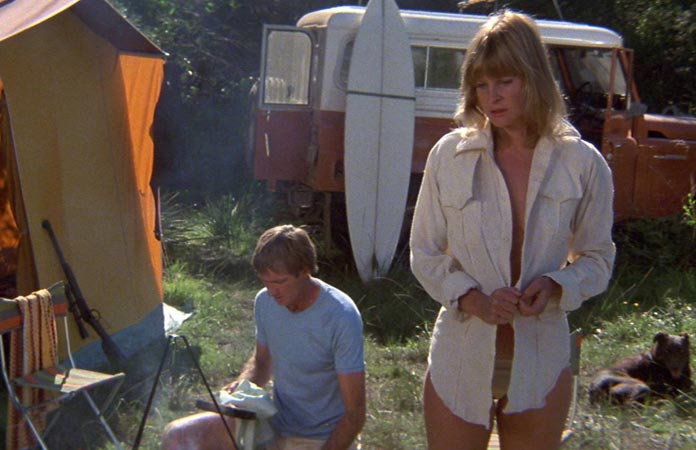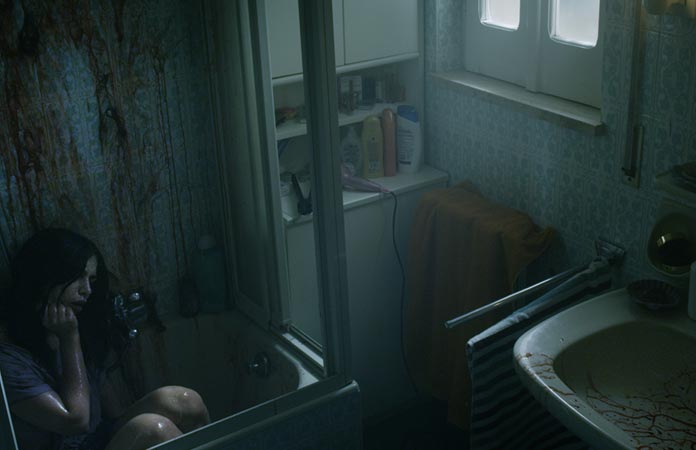Blu-Ray Review: Cherry 2000
Published on September 3rd, 2015 in: Blu-Ray, DVD/Blu-Ray Reviews, Movie Reviews, Movies, Reissues, Retrovirus, Reviews, Science Fiction |By Brendan Ross
The year is 2017 (30 years in the future) and due to some economic turmoil, the United States has essentially turned into a sparsely populated wasteland. Businessman Sam Treadwell (David Andrews), who lives in one of the few remaining civilized communities, comes home after a hard day of businessman work to his “Cherry 2000” (Pamela Gidley), a female love robot. She already has dinner ready for him, and after a healthy dose of preprogrammed ego catering words they are ready to make love. On the kitchen floor. While the future dishwasher runs in overdrive covering the floors, counters, and both of them with soapsuds. Unfortunately, even in the distant future of 2017 electronic water damage still has not been eradicated and Cherry short circuits.
Blu-Ray Review: Island of Death
Published on September 2nd, 2015 in: Blu-Ray, DVD/Blu-Ray Reviews, Movie Reviews, Movies, Reissues, Retrovirus, Reviews, Underground/Cult |Most people have a movie they only show to certain people, a movie so strange or weird that you would rather everyone not know you like it. In some cases, that movie is a test. The thought process is: if I show you this movie, and you still like me, then we can be friends. If you like me and the movie, then we can get married.
DVD Review: Glen Campbell… I’ll Be Me
Published on August 31st, 2015 in: Documentaries, DVD, DVD/Blu-Ray Reviews, Movie Reviews, Movies, Music, Reviews |Though it is incredibly wrenching, the documentary I’ll Be Me is such an important film. By allowing filmmaker James Keach unbridled access to himself and his family, Glen Campbell’s battle with Alzheimer’s disease is starkly delineated, from diagnosis to decline. It’s intimate and human and so hard to watch.
DVD Review: The Salvation
Published on August 25th, 2015 in: Current Faves, DVD, DVD/Blu-Ray Reviews, Movie Reviews, Movies, Reviews |The Salvation is a Western. It’s not a comedy western, it’s not a horror western, and it’s not a science fiction western: it’s just a Western. It’s about revenge and it stars Mads Mikkelsen, Eva Green, and Jeffrey Dean Morgan. It’s also outstanding.
Blu-Ray Review: Inner Demons
Published on August 11th, 2015 in: Blu-Ray, DVD/Blu-Ray Reviews, Horror, Movie Reviews, Movies, Reviews |You’ve seen it before and there’s no sense in denying it. Some things just shouldn’t be paired up. Maybe there’s a couple whose relationship dynamic seems odd and impenetrable. Perhaps someone likes to do strange things with their food. I, for example, put peanut butter on hot dogs. My wife is displeased with this choice.
These examples of poor matching can be applied to the horror film, Inner Demons, a found-footage film which shouldn’t be a found-footage film.
The Official Popshifter Podcast, Episode #01: Styx and Stones
Published on August 7th, 2015 in: Blu-Ray, Books, Concert Reviews, DVD/Blu-Ray Reviews, Horror, Movie Reviews, Movies, Music, Music Reviews, Podcasts, Reissues, Retrovirus, Reviews |Welcome to The Official Popshifter Podcast, Episode #01, “Styx and Stones May Break My Bones, But Save Hannibal”
Featuring Managing Editor Less Lee Moore and Featured Contributor Jeffery X Martin! Enjoy and thanks for listening.
Reviews:
Ted Nugent, Free-For-All (Expanded Edition)
Goblin Rebirth, Goblin Rebirth
Pit Stop Blu-Ray
Veruca Salt at Lee’s Palace, Toronto ON
Links:
Satanic Panic: Pop Cultural Paranoia In the 1980s
The Black Room Manuscripts (all proceeds go to Blue Cross UK)
Blu-Ray Review: Pit Stop
Published on July 17th, 2015 in: Blu-Ray, Current Faves, DVD/Blu-Ray Reviews, Movie Reviews, Movies, Reissues, Retrovirus, Reviews |When Roger Corman approached Jack Hill to make a film about stock car racing, Hill was hesitant; he hated both stock car racing and movies about stock car racing. The fact that Pit Stop is such a marvelous example of 1960s independent art cinema is a huge testament to Jack Hill’s tenacity and talent.
Blu-Ray Review: Long Weekend
Published on June 19th, 2015 in: Blu-Ray, Culture Shock, Current Faves, DVD/Blu-Ray Reviews, Horror, Movie Reviews, Movies, Reissues, Retrovirus, Reviews |If we Americans have learned anything over the last 20 years, it’s that Australia is hell on earth. Spiders bigger than your face, jellyfish that can kill you from ten miles away, sharks, Yahoo Serious. . . it’s the kind of place we should really nuke from orbit. It’s the only way to be sure.
At its dark little heart, the 1978 Australian film Long Weekend is about hell, and the different ways that concept can manifest itself into reality.
Blu-Ray Review: Spring
Published on June 12th, 2015 in: Blu-Ray, Comedy, Culture Shock, Current Faves, DVD/Blu-Ray Reviews, Horror, Movie Reviews, Movies, Reviews |I detest romantic comedies. They are often decidedly unromantic and terribly unfunny. Throw drama into the mix and it’s even worse: concocted conflicts and clichéd characters. Horror comedies are a more palatable but often hit or miss. Combining all four genres seems like a bad idea. Somehow Spring manages to do that and still be terrific. It’s the best romantic comedy/drama horror movie you’ve seen yet.
Blu-Ray Review: Da Sweet Blood Of Jesus
Published on May 29th, 2015 in: Blu-Ray, Culture Shock, Current Faves, DVD/Blu-Ray Reviews, Movie Reviews, Movies, Reviews |In 1972, African-American writer, director, and actor Bill Gunn was given free reign to make a film that would capitalize on the success of Blacula. The result was the bizarre yet beautiful Ganja & Hess, his rumination on addiction, religion, and African-American culture, which would thrill audiences at Cannes, only to be savaged by critics upon its eventual release. The producers re-edited and repackaged Ganja & Hess as Black Vampire and the film was mostly forgotten.
But Bill Gunn never forgot. In 1973 he wrote a scathing letter to the NY Times, which said, among other things, “Your newspapers and critics must realize that they are controlling black theater and film creativity with white criticism.” Sadly, Gunn died in 1989, after making only one more film, 1980’s Personal Problems.
